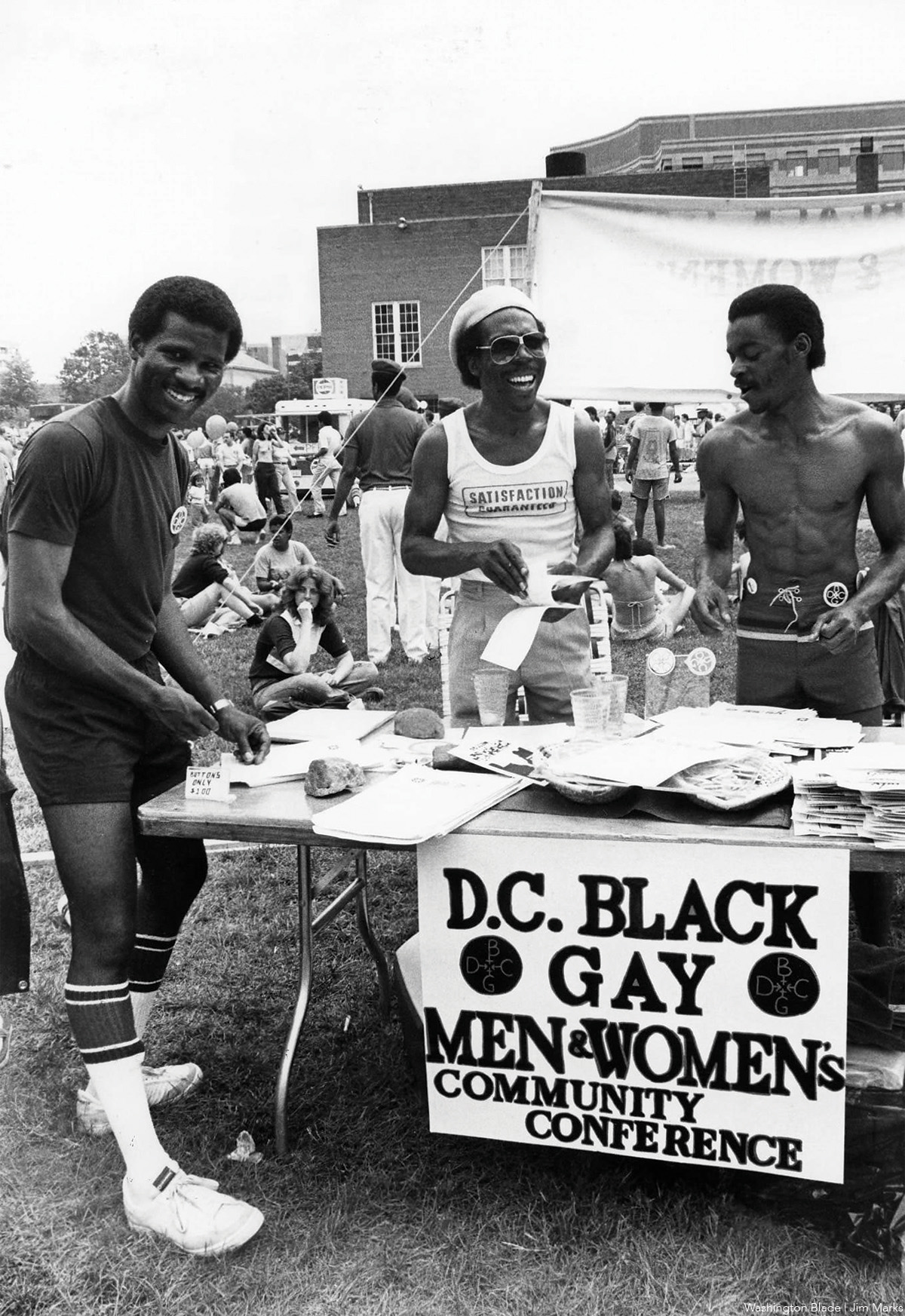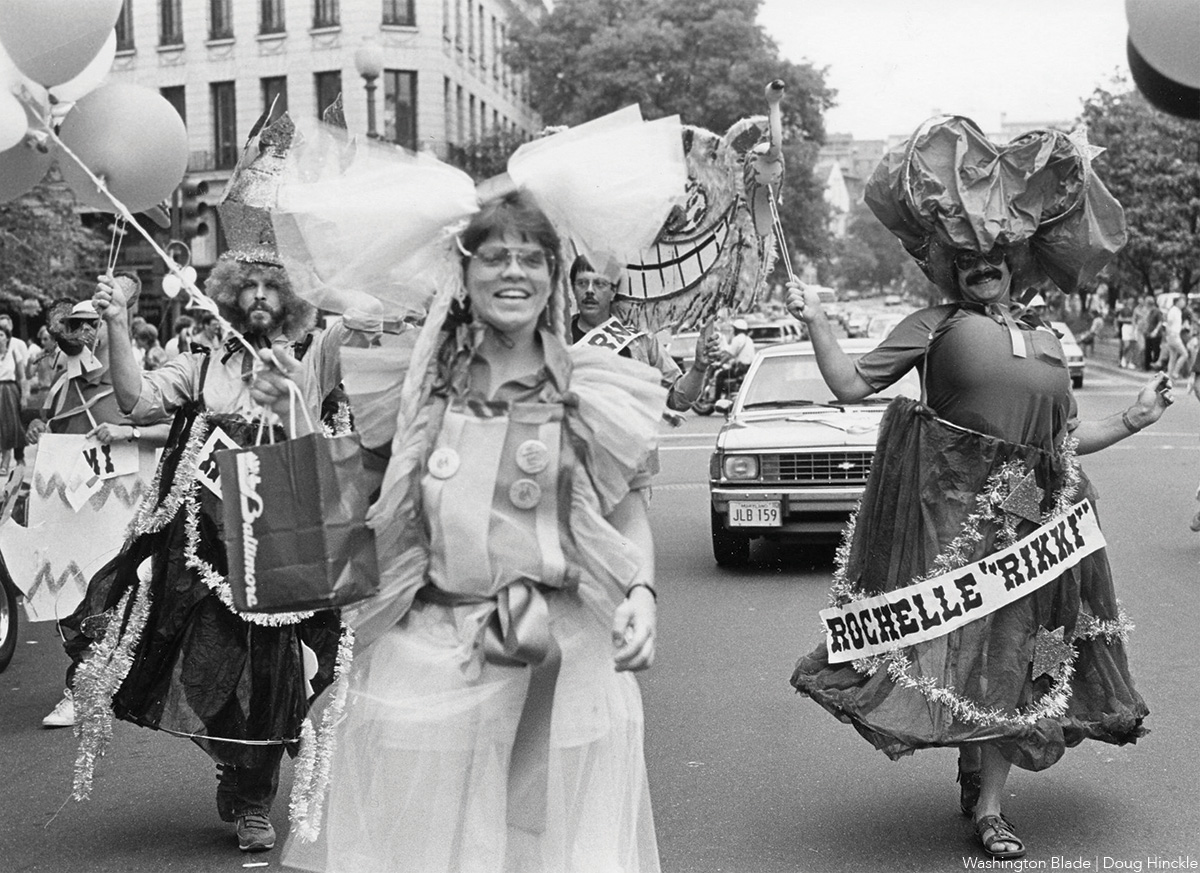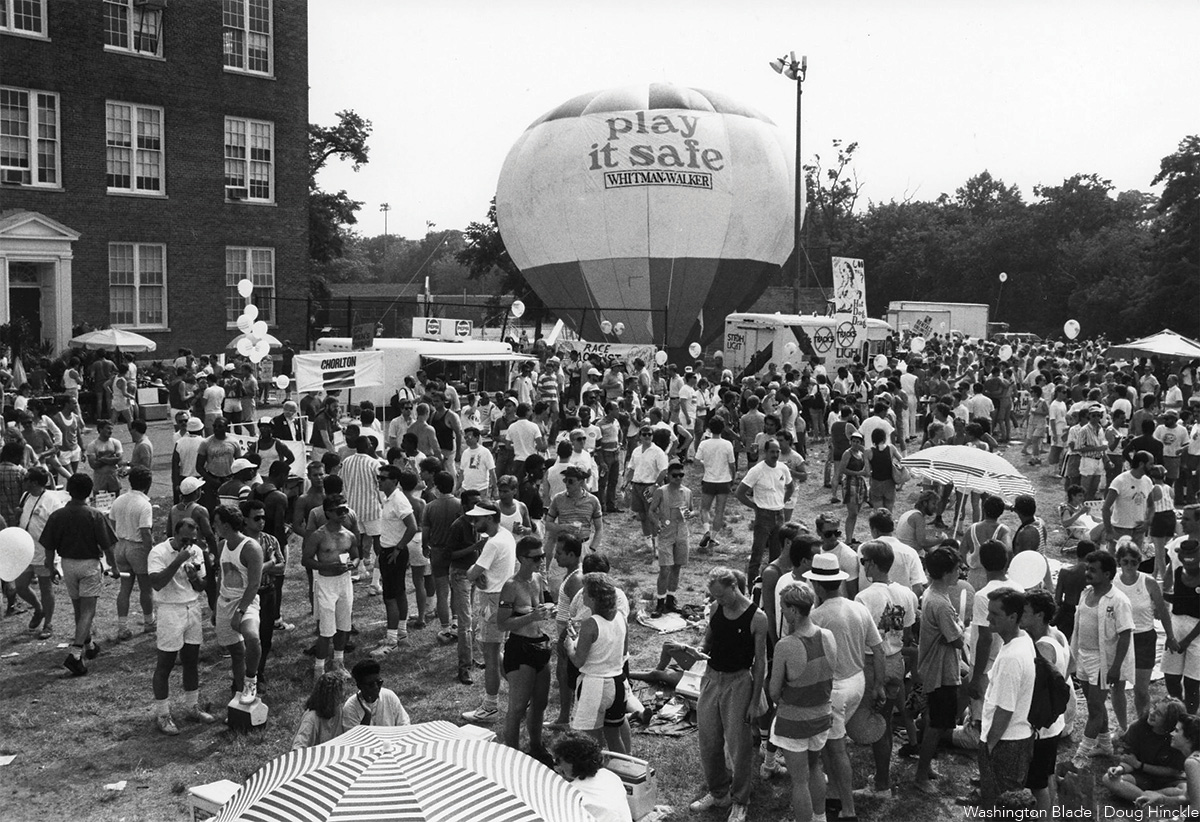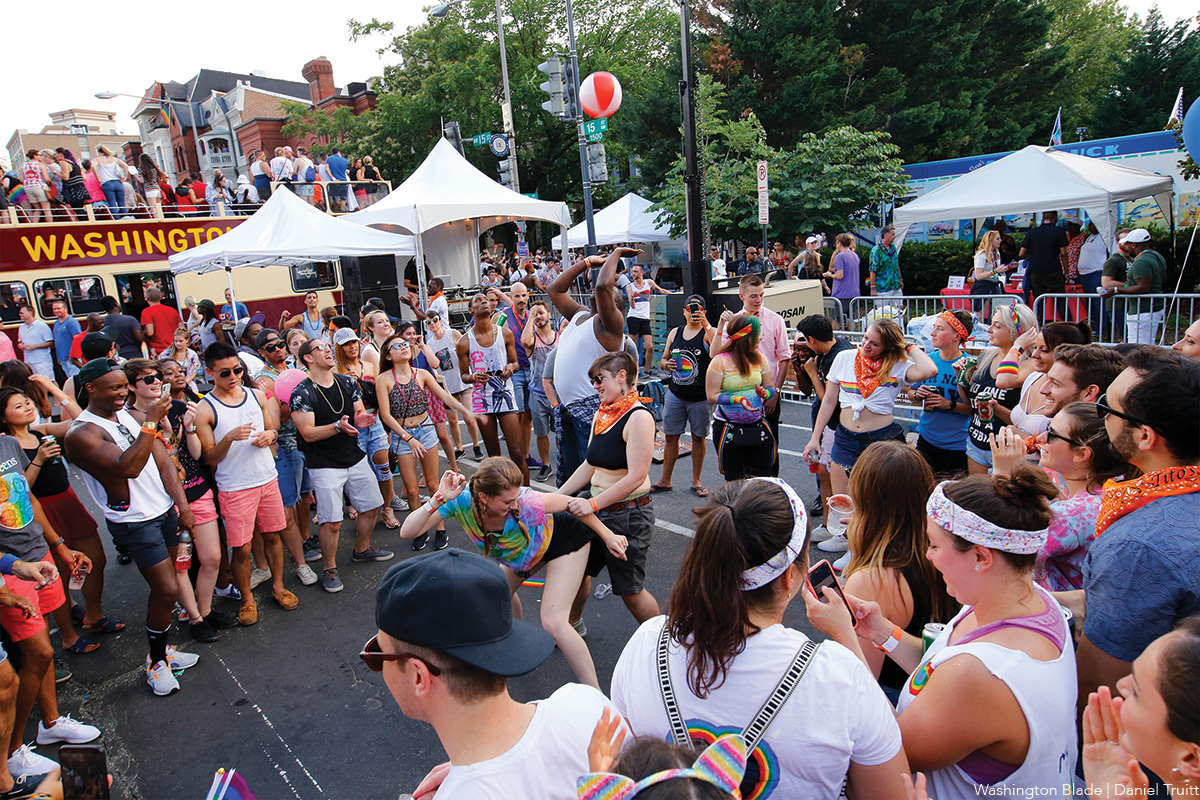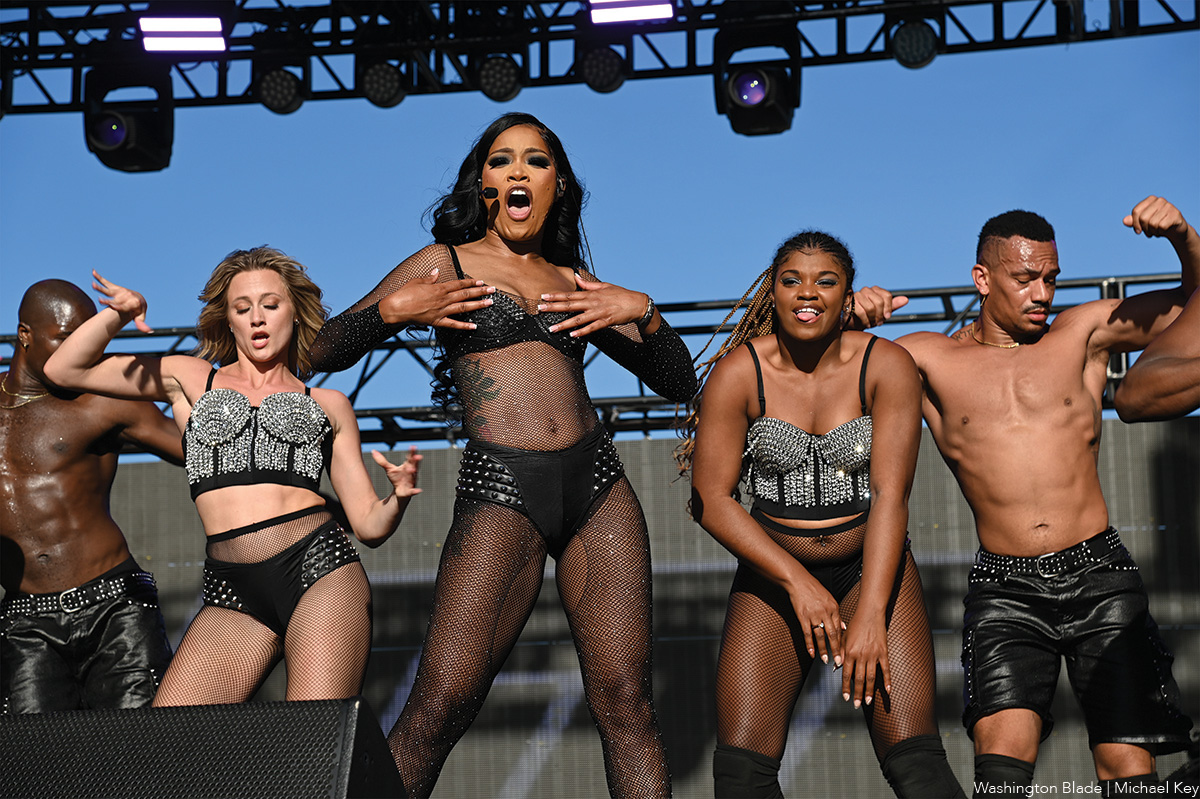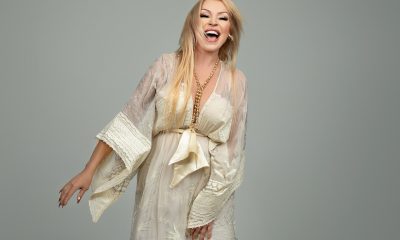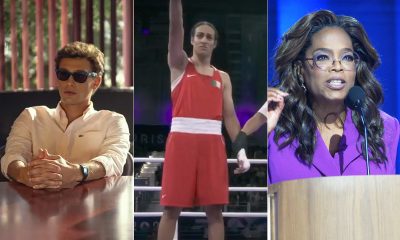a&e features
The soul of Rob Bell
Pastor, author finds life beyond strictures of conservative Christianity
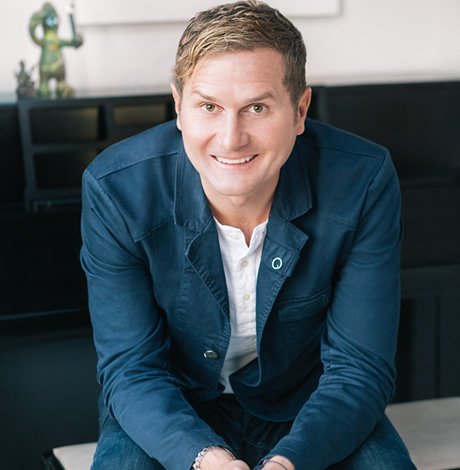
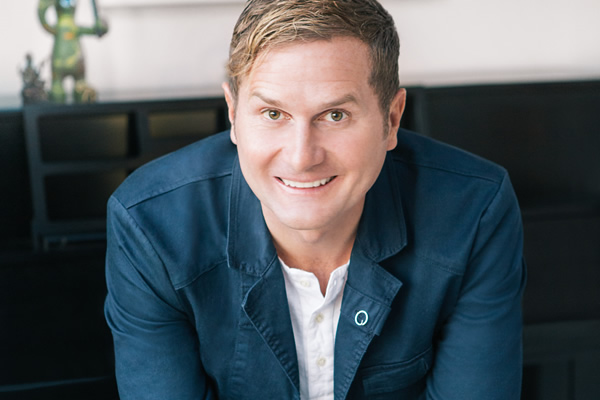
Pastor/author Rob Bell says the Bible must be understood as a human book written in specific historical contexts. (Photo courtesy the Bohlsen Group)
Rob Bell
Everything is Spiritual Tour
The Fillmore Silver Spring
8656 Colesville Rd.
Silver Spring, Md.
Wednesday, July 22
8:30 p.m.
$25-35
Once one of the darlings of white evangelical America, Rob Bell drew strong condemnation when he veered off script with his 2011 book “Love Wins,” a New York Times bestseller in which he dared to suggest hell isn’t the literal fire-and-brimstone torture chamber fundamentalist Christians have long claimed.
He left Mars Hill Bible Church, the Grandville, Mich., church he started at age 28 in 1999, in 2012 and has pursued several ventures since from a book with his wife Kristen (“The Zimzum of Love”), a tour with Oprah Winfrey (the 2014 “Life You Want Tour”) and more. Named one of the 100 most influential people in the world by Time magazine in 2011, Bell’s own “Everything is Spiritual Tour” comes to Silver Spring, Md., next week. Bell is an LGBT ally and spoke with us by phone this week from New Orleans to talk about trends in contemporary U.S. Christianity, how he feels the Scriptures have been abused on all kinds of topics and what message he feels God has for LGBT people. His comments have been slightly edited for length.
WASHINGTON BLADE: You write a lot in your book “Velvet Elvis” about the work of binding and loosing and wrestling with scriptural texts. What kind of binding and loosing work are you doing on your tour?
ROB BELL: I’m trying to give people a new story, a story that helps them see that science and spirituality are long-lost dance partners and because of what we know about the universe and the fact that it’s an expanding universe, along with what we know about how our hearts work, I feel there are endless connections between the two. So that’s what I’m doing — asking some questions about what is this thing that keeps unfolding and moving forward … and what does it look like to have an integrated view of your life in the world so that it’s not just random fragments, but you have a sense that the whole thing is going somewhere and you’re going somewhere with it.
BLADE: How’s it going?
BELL: Oh my word, it’s so much fun. I just love this. … It’s kind of somewhere between a one-man show and a tent talk and a recovery meeting and hopefully an inspiring sermon in there too. It’s like a mishmash of art forms and I just love doing it.
BLADE: As you’ve veered away from traditional evangelical Christianity, who is your audience now? Are you finding acceptance among mainline Protestants?
BELL: I always thought the word evangelical meant good news, so I always thought it meant a joyous announcement that we are all loved and are all brothers and sisters and all in this together and let’s all work to deal with the suffering and the real problems in the world. So the idea of a subculture that liked to claim that word sort of always seemed ridiculous to me. … I didn’t grow up with any denominational affiliation, so I was dealing with this stuff kind of all across the spectrum whether it be Eastern Orthodox to Catholic to Christian to whatever, I was really talking about what it means to be human.
BLADE: Yes, but when we talk about voting trends and demographics and so on, evangelicals are counted separately from mainline Protestants and Roman Catholics. Do you not think in terms of these spheres?
BELL: No. I just never knew what they were talking about really. I mean I was always pro science. When they’d talk about these different groups, I’d be like, “Well, I’m not in that group, they’re saying crazy things.” But I did notice definitely from early on that I endlessly found myself discovering people who were on the same journey from all across the spectrum and to be honest with you, early on I found that all those labels just meant nothing. I’d end up in some setting and I’d be like, “Wait, these people are having the same discussion over here.” Mennonites are having a non-violence discussion, Catholics are talking about the importance of creativity in art, the Eastern Orthodox are talking about the centrality of mystery in faith … There was a through-line through the whole discussion so that even when we were pastoring (Mars Hill), we never saw it as putting together a religion. … When I hear people talk about these people vote this way or those people vote that way, I’m sure there’s some truth in those things on a general level, but they were never very interesting to me.
BLADE: So are you averse to “we-they” thinking in general?
BELL: Yeah. It just never seemed like a very interesting discussion.
BLADE: You took a lot of heat for daring to suggest a different view of hell in “Love Wins.” How much of that did you anticipate?
BELL: I did a series of sermons on women’s equality probably in 2002, so I had experienced this kind of unique venom that religious people spew when they believe they’re defending God. I had done a series of sermons questioning the war in Iraq, my first book had apparently made some people upset so while “Love Wins” was louder, the knobs were turned up, it was really a natural ongoing progression of what I’d been experiencing for over decade. … It’s interesting to see how many people aren’t familiar with the fact that nothing I’m saying in that book is really new. These ideas have been present in the Christian tradition for a number of years.
BLADE: Did you fear getting pigeonholed as “Rob Bell, the guy who says there’s no hell”?
BELL: (laughs) It’s not something I even think about. You can’t take people where they don’t want to go. Some people when they talk about faith, what they’re really talking about is fear. They’re not interested in expanding or growing … so I don’t use much energy thinking about it.
BLADE: Your critics seem to have pegged you as somebody who wants to have his cake and eat it too. What’s the biggest misconception about you?
BELL: What does that even mean?
BLADE: Well, broadly speaking, the criticism seems to come down to an opinion that you want to enjoy the kind, loving God but just skip over the unpleasant parts like the hell, fire and brimstone. It’s a recurring theme among your critics.
BELL: It’s just funny to hear that. It’s a weird critique number one and number two, these people who claim to be sharing the good news, oh wait, it’s actually bad news. If you’re literally operating from a world view that says billions and billions and billions are going to be tormented forever in some sort of conscious hell because they didn’t believe in somebody they never heard about … that’s a horror story. That is such a psychologically devastating portrait of the universe we’re living in, who could ever bear that? So if they’re like, “He won’t include that,” that’s correct, I don’t find that even remotely compelling … Fear is wonderful for behavior modification to a certain degree, but I think probably in your life and mine, what actually transforms your life is when you are given a new vision of who you might be in the world. You can scare people a little to get them to behave right or be moral or vote a particular way or raise money for your thing, but in my experience as a pastor, people are transformed when they hear a fresh new word of imagination about who they are and who they can become. So when people say, “He doesn’t want to bring that stuff up,” well, I’m in line with millions of people of faith who are more interested in making the world a better place. I’m laughing because sometimes the critiques are like, “Are you kidding me?”
BLADE: So those Bible verses you never see on coffee mugs like “depart from me ye cursed into everlasting fire prepared for the devil and his angels” that Christ supposedly says to the damned, what do you feel those verses mean?
BELL: Well I think first and foremost, everything Jesus was doing was in the context of first century Jewish culture … a people that had been oppressed by one global military super power, the Romans, that was just another oppressive super power in a long line of them from the Persians to the Greeks to the Babylonians and more. These were people who had been conquered again and again and again and they believed at some point that their God would vindicate them. Often people have so divorced the reading of the text from what was happening at the time which here, I think Jesus is giving these really pointed parables and I think giving them these images of do you want to participate in a new kind of world? Do you want to join me with God in helping the poor and bringing about a new heaven and earth right now? They were part of an entire religious establishment that was part of the problem, exploiting the poor, dehumanizing people and I think he’s using very strong, very pointed hyperbolic language to say to them, “Turn your thinking around. Turn your actions around or you’re going to miss this fresh new thing that God is doing.” … So when people extract lines out of this and say people everywhere are going to burn forever, they have so warped the message, taken it out of context and distorted the story. … You can take things out of context and make them say anything.
BLADE: You’re very open and affirming to gays. Did your views on LGBT issues evolve?
BELL: I always felt my gay friends should of course be part of the church and serve and lead there so any interactions I ever had were, “Yes, of course I embrace you and affirm you. I’m thrilled you are here.” But it seems like a lot of people, I didn’t understand how painful it is for people to be in an environment where they aren’t openly affirmed and embraced. I just assumed it was a matter of, “Just join us, let’s go and let’s do this.” It took me awhile to understand and now I have several friends who’ve said the same thing. So it became, “Oh wait, this is all our issue, we all need to speak up about this and become very strong in our affirming and embracing.” So it was a long, slow road of me coming to that understanding. … I’m thrilled with the progress that’s being made. I’m so happy about it.
BLADE: Do you feel God has a message for LGBT believers?
BELL: Yes. First off, so many who were raised in a religious environment where they were told there was something wrong with them, they had to do a lot of interior work to get over those messages and it took extraordinary courage. I’m constantly astounded by the incredible depth of character and maturity I see in the LGBT community because they have struggled. That fire produces such maturity and I’m just in awe of it. So I just say keep going and on behalf of everybody who ever told you a destructive message about who you are, I’m so sorry. You are loved and affirmed exactly as you are.
BLADE: Why do you feel God would make someone transgender?
BELL: I actually don’t find it helpful to think in terms of why would God make someone a particular way. I don’t have that view of God. I begin with the world the way it is. We all have different struggles and why is someone born feeling they’re not comfortable in their own skin, I’m not interested in blaming some divine being on a cloud somewhere with a long beard and that sort of thing. This is how this person has experienced life and what we need to do is support them in being true to who they feel they are. There’s no way to answer those questions other than to start with where we are today and what does it mean to move forward in health and wholeness and joy?
BLADE: There are lots of scriptures advising wariness to false teaching and not to let ourselves get “tossed here and there by waves and carried about by every wind of doctrine.” Some say you’re a false teacher leading people astray. How does one discern anointed teaching vs. false teaching?
BELL: The ancient Hebrews had this word shalom, which sometimes gets translated as the word peace, but peace in a Western context usually means people are not fighting, the absence of war. But shalom is really about health and wholeness and there’s multiple dimensions of shalom — peace with each other, peace with the earth, taking good care of the earth, being comfortable in our own skin, being at peace with ourselves. So I would simply ask, “Does this, whatever this idea is, a new movement or new interpretation, does this help us move forward into a greater and greater depth of shalom or not?” To me, that’s a good place to start. If it does not, then we should be a bit suspicious.
BLADE: Is the needle shifting away from fundamentalism?
BELL: Absolutely and here’s why. You would not believe the number of big-shot Christian leaders who come meet with me and … say, “Thank you for your books, thanks for what you’re doing. I can’t say that in my setting because I would get fired.” They basically say they’re pro-same-sex marriage and they’re evolving and growing and realizing the importance of science in understanding the world, they’re reading the Bible in new ways, but they basically say, “I get a paycheck from propping up this whole old world view that’s not working anymore.” You would not believe it. So yes, I think extraordinary strides are being made.
BLADE: But then how does this “Duck Dynasty”-kind of mindset keep popping up in culture?
BELL: If you’re part of a subculture that’s dying, it’s terrifying. You used to have your hand on the wheel and you’re used to seeing yourselves as the dominant voice in culture and now that you’re not, your subculture is increasingly out of step and for some people, that’s not just a neutral thing, but a negative effect in the world. It’s terrifying and when someone who has a microphone or a TV show can say, “There’s no need to move forward, they’re the ones who are crazy, just dig in your heels with me on this, we’re the ones who are right,” and dig their stake into the ground, that’s incredibly comforting to them. It’s electric. No wonder people have incredible heat around this sort of thing. It’s a last desperate attempt to sort of put on blinders and pretend everything is always going to be how it is. The great French paleontologist de Chardin said the soul of the universe goes forward. Fundamentalism on an energetic level, is rooted in a desire to go back, to some sort of imagined pure state of perfection of how things used to be. The fact that the universe can only go forward is why fundamentalism always turns on itself and collapses in the end.
BLADE: You must have had situations where the evangelical gatekeepers started closing the gates to you. Did (religious publisher) Zondervan (Bells’ publisher for several early books) reject “Love Wins”?
BELL: I never thought of those types as people I had to have on my team. But oh yeah, probably even 14 or 15 years ago, I would hear of people telling people not to have anything to do with me. That started to become a regular occurrence, but I never saw that as the goal anyway. It wasn’t compelling to me to be in with any gatekeeper. I was just always on to the next thing. I joke that I felt like the drummer in “Spinal Tap.” I felt like I would spontaneously combust if I didn’t get the next book or the next tour done. People who aren’t on board, they’re not really on my radar.
BLADE: If you had stayed at Mars Hill, would you have felt like you were increasingly preaching to the choir?
BELL: What does that mean?
BLADE: Well, you know, did you feel a calling to take the message beyond just church folks?
BELL: Yes. It was time to take the next leap. … There were a lot of unknowns and a lot of risks but that’s how you stay fully alive. And yeah, it was a really extraordinary season where it was like the clouds moved and I knew it was time to go. So here we are, let’s do this. That was really amazing.
BLADE: If the needle is shifting, why does it seem like the mainline Protestant churches have done such a dismal job at harnessing any of that energy into their tradition? Why is all the growth and excitement in the evangelical churches?
BELL: If your world view is that billions of people are going to burn forever, that’s a pretty good motivator to get off your ass and do something so you see a lot of this endless entrepreneurial innovation and energy being funneled into these places with very rigid, regressive theology and world view. Then over here you have these progressive, open-minded churches that are great on peace and justice and reconciliation and they’re literally arguing about what the choir selections are or the color of the carpet. I’m like, “Wait, you guys have such great ideas, how have you made mountains out of these molehills?” That said, I do see extraordinary things happening like the Garden in Long Beach, Calif., or Oasis in central London where people are trying new things and it feels like the best fusion. It’s fresh and the best of all across the spectrum and it really feels to me like people in their garages coming up with the next lap top.
BLADE: What’s Oprah been like?
BELL: Oh my word, she is as amazing as you imagine she is. … She has profound wisdom and a mountain of spiritual riches to share. … She is growing and learning and stretching and asking, “What do I do with what I’ve been given?”
BLADE: You’re so knowledgeable about the scriptures and their historical context. What do you make of that passage in John where it references “many other signs and wonders” in the life of Christ that have not been included. I suppose most pastors would say we have all we need, but does that verse pique your curiosity?
BELL: Oh yeah, I’m totally with you on that. It’s like the writer is saying, “I just want you to know, I had tons of material to work with. I just want you to know that I edited this sucker down to these few chapters, but oh my, could I have included some other stuff.” Which I think is awesome. What a human book. … It’s so awesome and so weird and to me, makes it all the more interesting.
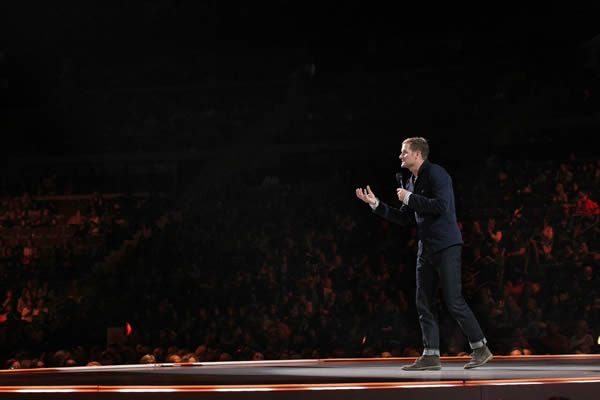
Rob Bell says the tide is turning toward more open-minded views in Christian America. (Photo courtesy the Bohlsen Group)
a&e features
Visit Cambridge, a ‘beautiful secret’ on Maryland’s Eastern Shore
New organization promotes town’s welcoming vibe, LGBTQ inclusion

CAMBRIDGE, Md. — Driving through this scenic, historic town on Maryland’s Eastern Shore, you’ll be charmed by streets lined with unique shops, restaurants, and beautifully restored Victorian homes. You’ll also be struck by the number of LGBTQ Pride flags flying throughout the town.
The flags are a reassuring signal that everyone is welcome here, despite the town’s location in ruby red Dorchester County, which voted for Donald Trump over Kamala Harris by a lopsided margin. But don’t let that deter you from visiting. A new organization, Proudly Cambridge, is holding its debut Pride event this weekend, touting the town’s welcoming, inclusive culture.
“We stumbled on a beautiful secret and we wanted to help get the word out,” said James Lumalcuri of the effort to create Proudly Cambridge.
The organization celebrates diversity, enhances public spaces, and seeks to uplift all that Cambridge has to share, according to its mission statement, under the tagline “You Belong Here.”
The group has so far held informal movie nights and a picnic and garden party; the launch party is June 28 at the Cambridge Yacht Club, which will feature a Pride celebration and tea dance. The event’s 75 tickets sold out quickly and proceeds benefit DoCo Pride.
“Tickets went faster than we imagined and we’re bummed we can’t welcome everyone who wanted to come,” Lumalcuri said, adding that organizers plan to make “Cheers on the Choptank” an annual event with added capacity next year.
One of the group’s first projects was to distribute free Pride flags to anyone who requested one and the result is a visually striking display of a large number of flags flying all over town. Up next: Proudly Cambridge plans to roll out a program offering affirming businesses rainbow crab stickers to show their inclusiveness and LGBTQ support. The group also wants to engage with potential visitors and homebuyers.
“We want to spread the word outside of Cambridge — in D.C. and Baltimore — who don’t know about Cambridge,” Lumalcuri said. “We want them to come and know we are a safe haven. You can exist here and feel comfortable and supported by neighbors in a way that we didn’t anticipate when we moved here.”

Lumalcuri, 53, a federal government employee, and his husband, Lou Cardenas, 62, a Realtor, purchased a Victorian house in Cambridge in 2021 and embarked on an extensive renovation. The couple also owns a home in Adams Morgan in D.C.
“We saw the opportunity here and wanted to share it with others,” Cardenas said. “There’s lots of housing inventory in the $300-400,000 range … we’re not here to gentrify people out of town because a lot of these homes are just empty and need to be fixed up and we’re happy to be a part of that.”
Lumalcuri was talking with friends one Sunday last year at the gazebo (affectionately known as the “gayzebo” by locals) at the Yacht Club and the idea for Proudly Cambridge was born. The founding board members are Lumalcuri, Corey van Vlymen, Brian Orjuela, Lauren Mross, and Caleb Holland. The group is currently working toward forming a 501(c)3.
“We need visibility and support for those who need it,” Mross said. “We started making lists of what we wanted to do and the five of us ran with it. We started meeting weekly and solidified what we wanted to do.”
Mross, 50, a brand strategist and web designer, moved to Cambridge from Atlanta with her wife three years ago. They knew they wanted to be near the water and farther north and began researching their options when they discovered Cambridge.
“I had not heard of Cambridge but the location seemed perfect,” she said. “I pointed on a map and said this is where we’re going to move.”
The couple packed up, bought a camper trailer and parked it in different campsites but kept coming back to Cambridge.
“I didn’t know how right it was until we moved here,” she said. “It’s the most welcoming place … there’s an energy vortex here – how did so many cool, progressive people end up in one place?”
Corey van Vlymen and his husband live in D.C. and were looking for a second home. They considered Lost River, W.Va., but decided they preferred to be on the water.
“We looked at a map on both sides of the bay and came to Cambridge on a Saturday and bought a house that day,” said van Vlymen, 39, a senior scientist at Booz Allen Hamilton. They’ve owned in Cambridge for two years.
They were drawn to Cambridge due to its location on the water, the affordable housing inventory, and its proximity to D.C.; it’s about an hour and 20 minutes away.
Now, through the work of Proudly Cambridge, they hope to highlight the town’s many attributes to residents and visitors alike.
“Something we all agree on is there’s a perception problem for Cambridge and a lack of awareness,” van Vlymen said. “If you tell someone you’re going to Cambridge, chances are they think, ‘England or Massachusetts?’”
He cited the affordability and the opportunity to save older, historic homes as a big draw for buyers.
“It’s all about celebrating all the things that make Cambridge great,” Mross added. “Our monthly social events are joyful and celebratory.” A recent game night drew about 70 people.
She noted that the goal is not to gentrify the town and push longtime residents out, but to uplift all the people who are already there while welcoming new visitors and future residents.
They also noted that Proudly Cambridge does not seek to supplant existing Pride-focused organizations. Dorchester County Pride organizes countywide Pride events and Delmarva Pride was held in nearby Easton two weeks ago.
“We celebrate all diversity but are gay powered and gay led,” Mross noted.
To learn more about Proudly Cambridge, visit the group on Facebook and Instagram.
What to see and do
Cambridge, located 13 miles up the Choptank River from the Chesapeake Bay, has a population of roughly 15,000. It was settled in 1684 and named for the English university town in 1686. It is home to the Harriet Tubman Museum, mural, and monument. Its proximity to the Blackwater National Wildlife Refuge makes it a popular stop for birders, drawn to more than 27,000 acres of marshland dubbed “the Everglades of the north.”
The refuge is walkable, bikeable, and driveable, making it an accessible attraction for all. There are kayaking and biking tours through Blackwater Adventures (blackwateradventuresmd.com).
Back in town, take a stroll along the water and through historic downtown and admire the architecture. Take in the striking Harriet Tubman mural (424 Race St.). Shop in the many local boutiques, and don’t miss the gay-owned Shorelife Home and Gifts (421 Race St.), filled with stylish coastal décor items.
Stop for breakfast or lunch at Black Water Bakery (429 Race St.), which offers a full compliment of coffee drinks along with a build-your-own mimosa bar and a full menu of creative cocktails.
The Cambridge Yacht Club (1 Mill St.) is always bustling but you need to be a member to get in. Snapper’s on the water is temporarily closed for renovations. RaR Brewing (rarbrewing.com) is popular for craft beers served in an 80-year-old former pool hall and bowling alley. The menu offers burgers, wings, and other bar fare.
For dinner or wine, don’t miss the fantastic Vintage 414 (414 Race St.), which offers lunch, dinner, wine tasting events, specialty foods, and a large selection of wines. The homemade cheddar crackers, inventive flatbreads, and creative desserts (citrus olive oil cake, carrot cake trifle) were a hit on a recent visit.
Also nearby is Ava’s (305 High St.), a regional chain offering outstanding Italian dishes, pizzas, and more.
For something off the beaten path, visit Emily’s Produce (22143 Church Creek Rd.) for its nursery, produce, and prepared meals.
“Ten minutes into the sticks there’s a place called Emily’s Produce, where you can pay $5 and walk through a field and pick sunflowers, blueberries, you can feed the goats … and they have great food,” van Vlymen said.
As for accommodations, there’s the Hyatt Regency Chesapeake Bay (100 Heron Blvd. at Route 50), a resort complex with golf course, spa, and marina. Otherwise, check out Airbnb and VRBO for short-term rentals closer to downtown.
Its proximity to D.C. and Baltimore makes Cambridge an ideal weekend getaway. The large LGBTQ population is welcoming and they are happy to talk up their town and show you around.
“There’s a closeness among the neighbors that I wasn’t feeling in D.C.,” Lumalcuri said. “We look after each other.”
a&e features
James Baldwin bio shows how much of his life is revealed in his work
‘A Love Story’ is first major book on acclaimed author’s life in 30 years

‘Baldwin: A Love Story’
By Nicholas Boggs
c.2025, FSG
$35/704 pages
“Baldwin: A Love Story” is a sympathetic biography, the first major one in 30 years, of acclaimed Black gay writer James Baldwin. Drawing on Baldwin’s fiction, essays, and letters, Nicolas Boggs, a white writer who rediscovered and co-edited a new edition of a long-lost Baldwin book, explores Baldwin’s life and work through focusing on his lovers, mentors, and inspirations.
The book begins with a quick look at Baldwin’s childhood in Harlem, and his difficult relationship with his religious, angry stepfather. Baldwin’s experience with Orilla Miller, a white teacher who encouraged the boy’s writing and took him to plays and movies, even against his father’s wishes, helped shape his life and tempered his feelings toward white people. When Baldwin later joined a church and became a child preacher, though, he felt conflicted between academic success and religious demands, even denouncing Miller at one point. In a fascinating late essay, Baldwin also described his teenage sexual relationship with a mobster, who showed him off in public.
Baldwin’s romantic life was complicated, as he preferred men who were not outwardly gay. Indeed, many would marry women and have children while also involved with Baldwin. Still, they would often remain friends and enabled Baldwin’s work. Lucien Happersberger, who met Baldwin while both were living in Paris, sent him to a Swiss village, where he wrote his first novel, “Go Tell It on the Mountain,” as well as an essay, “Stranger in the Village,” about the oddness of being the first Black person many villagers had ever seen. Baldwin met Turkish actor Engin Cezzar in New York at the Actors’ Studio; Baldwin later spent time in Istanbul with Cezzar and his wife, finishing “Another Country” and directing a controversial play about Turkish prisoners that depicted sexuality and gender.
Baldwin collaborated with French artist Yoran Cazac on a children’s book, which later vanished. Boggs writes of his excitement about coming across this book while a student at Yale and how he later interviewed Cazac and his wife while also republishing the book. Baldwin also had many tumultuous sexual relationships with young men whom he tried to mentor and shape, most of which led to drama and despair.
The book carefully examines Baldwin’s development as a writer. “Go Tell It on the Mountain” draws heavily on his early life, giving subtle signs of the main character John’s sexuality, while “Giovanni’s Room” bravely and openly shows a homosexual relationship, highly controversial at the time. “If Beale Street Could Talk” features a woman as its main character and narrator, the first time Baldwin wrote fully through a woman’s perspective. His essays feel deeply personal, even if they do not reveal everything; Lucian is the unnamed visiting friend in one who the police briefly detained along with Baldwin. He found New York too distracting to write, spending his time there with friends and family or on business. He was close friends with modernist painter Beauford Delaney, also gay, who helped Baldwin see that a Black man could thrive as an artist. Delaney would later move to France, staying near Baldwin’s home.
An epilogue has Boggs writing about encountering Baldwin’s work as one of the few white students in a majority-Black school. It helpfully reminds us that Baldwin connects to all who feel different, no matter their race, sexuality, gender, or class. A well-written, easy-flowing biography, with many excerpts from Baldwin’s writing, it shows how much of his life is revealed in his work. Let’s hope it encourages reading the work, either again or for the first time.
a&e features
Looking back at 50 years of Pride in D.C
Washington Blade’s unique archives chronicle highs, lows of our movement
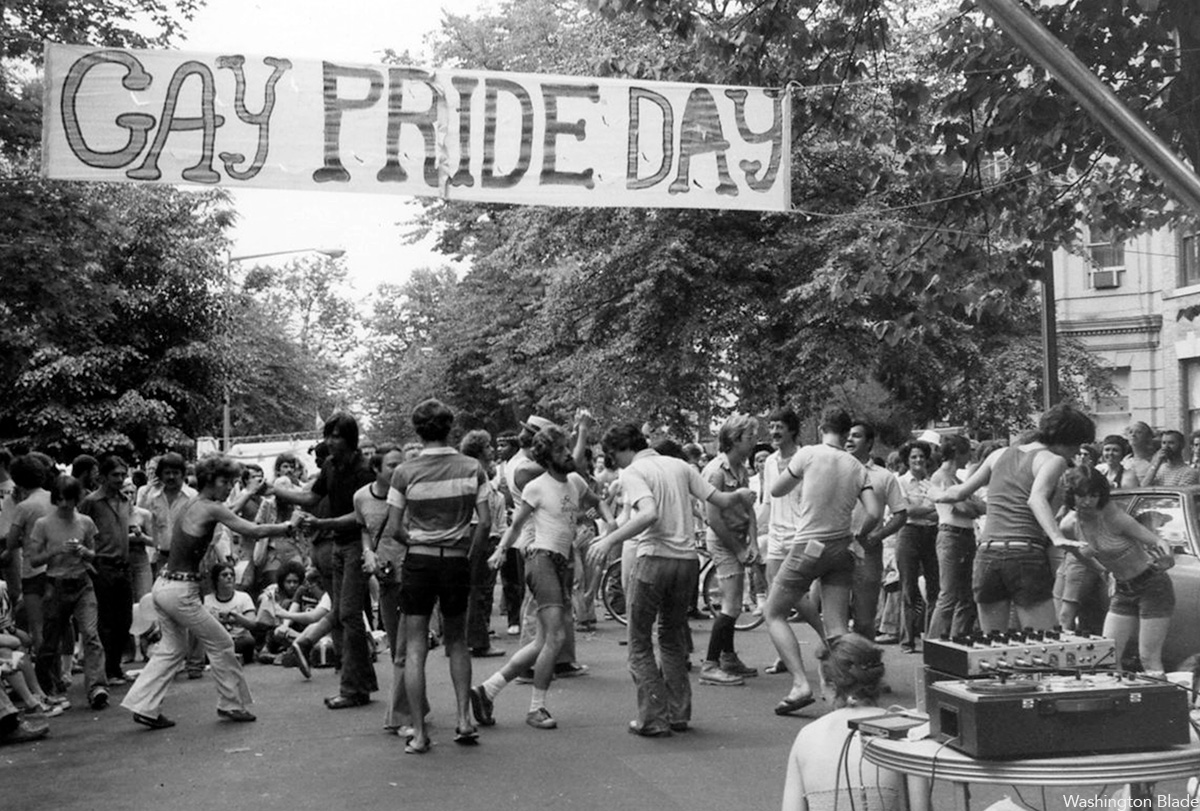
To celebrate the 50th anniversary of LGBTQ Pride in Washington, D.C., the Washington Blade team combed our archives and put together a glossy magazine showcasing five decades of celebrations in the city. Below is a sampling of images from the magazine but be sure to find a print copy starting this week.
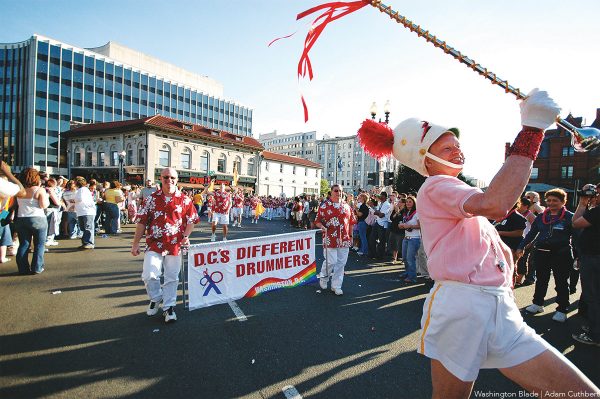
The magazine is being distributed now and is complimentary. You can find copies at LGBTQ bars and restaurants across the city. Or visit the Blade booth at the Pride festival on June 7 and 8 where we will distribute copies.
Thank you to our advertisers and sponsors, whose support has enabled us to distribute the magazine free of charge. And thanks to our dedicated team at the Blade, especially Photo Editor Michael Key, who spent many hours searching the archives for the best images, many of which are unique to the Blade and cannot be found elsewhere. And thanks to our dynamic production team of Meaghan Juba, who designed the magazine, and Phil Rockstroh who managed the process. Stephen Rutgers and Brian Pitts handled sales and marketing and staff writers Lou Chibbaro Jr., Christopher Kane, Michael K. Lavers, Joe Reberkenny along with freelancer and former Blade staffer Joey DiGuglielmo wrote the essays.

The magazine represents more than 50 years of hard work by countless reporters, editors, advertising sales reps, photographers, and other media professionals who have brought you the Washington Blade since 1969.
We hope you enjoy the magazine and keep it as a reminder of all the many ups and downs our local LGBTQ community has experienced over the past 50 years.
I hope you will consider supporting our vital mission by becoming a Blade member today. At a time when reliable, accurate LGBTQ news is more essential than ever, your contribution helps make it possible. With a monthly gift starting at just $7, you’ll ensure that the Blade remains a trusted, free resource for the community — now and for years to come. Click here to help fund LGBTQ journalism.
